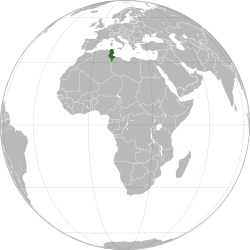Tunisia May Hold Political System Referendum
By Magharebia
By Monia Ghanmi
Tunisia may resort to a referendum to determine whether the country adopts a presidential or parliamentary political system.
That would be the case if differences continue in the Constituent Assembly between Ennahda, which defends a parliamentary system, and other parties who favour a presidential system, Omar Chetoui, chairman of Constituent Assembly’s legislative and executive authorities, said July 24th.

In a presidential system, the president of republic will be directly elected by the people and enjoy all powers, as compared to a parliamentary system, where the prime minister as head of government would hold the power with the president having only limited powers.
The Ennahda Movement supports an absolute parliamentary system, while the Congress for the Republic (CPR) and Ettakatol support a presidential system and believe that this type of system can prevent any political entity from controlling the government.
Mouldi Riahi, head of the Ettakatol bloc in the Constituent Assembly, said that the selection of parliamentary system for Tunisia would be a risk, adding that the adoption of a presidential system would be the most suitable and best option for the country for the time being.
“For the future of country, it’s necessary to ensure equality and balance of the three authorities,” he said.
Interim President Moncef Marzouki has also rejected a parliamentary system. In an interview with France 24 on July 18th, he said he hoped that Tunisians would reach a mixed and democratic system that is neither parliamentary nor presidential and that would protect the country against the return of a tyrannical regime.
He said he insisted on a mixed system because it guarantees a balance between the two heads of executive authority: the president and the head of government.
However, Abdelatif Mekki, a leader of Ennahda, confirmed that his party prefers the parliamentary system because it believes it is the best mechanism for consolidating the principle of distribution of powers between the presidency and government.
In the closing statement of its 9th conference, Ennahda said that it believed that a parliamentary system was more suitable for meeting the aspirations of Tunisian people in the future.
Speaking Wednesday (July 25th) at celebrations for Republic Day, Constituent Assembly Chairman Mustapha Ben Jaafar stressed need to reach a national consensus on the nature of political system for building the new Tunisia.
He noted that it was more important to choose a political system that suits national peculiarities and be the result of a national consensus that strikes a balance between authorities.
Some Tunisians believe that adopting a mixed system combining between the parliamentary and presidential systems would be the most ideal solution to realise real democracy.
“A compromise is the best thing,” said Sorour Alaya. “I think that adopting a mixed system in which the powers are divided between the head of government and president would be the best solution for this dispute and a way for consensus between all parties.”
Meanwhile, some think that a popular referendum would be the final answer for the on-going controversy between parties.
“No party has the right to impose a system of government on the country,” Mourad Bahrouni said. “This time, leave it to the Tunisian people to choose and decide the fate of government in their country.”
